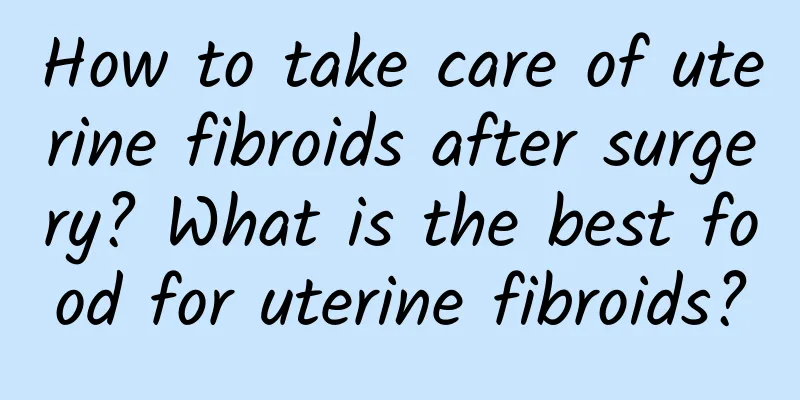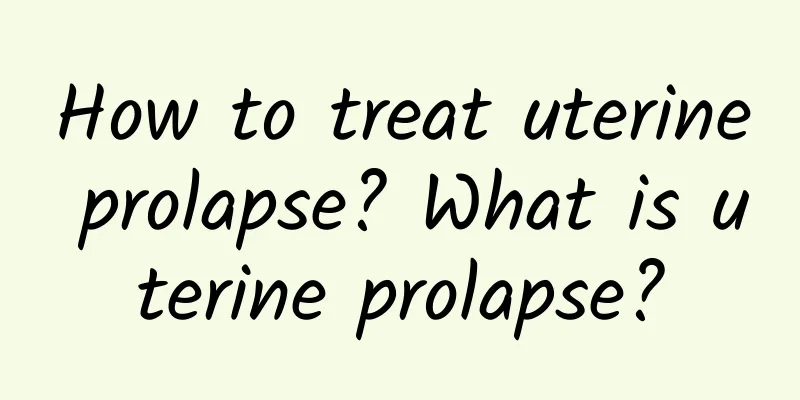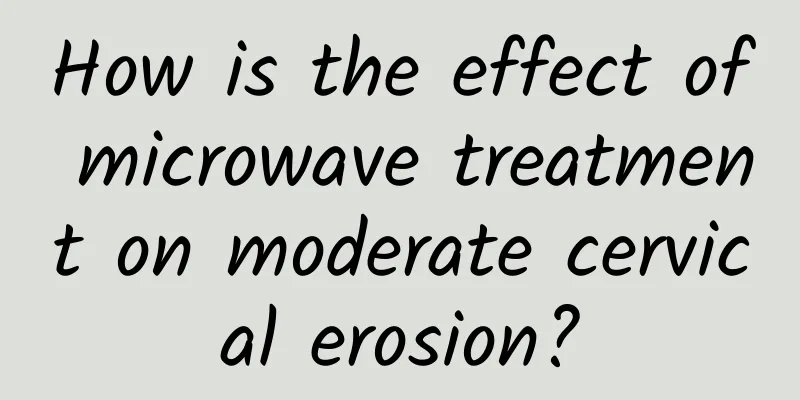How to take care of uterine fibroids after surgery? What is the best food for uterine fibroids?

|
Uterine fibroids are common benign tumors in women. Once diagnosed with uterine fibroids, women should seek timely treatment. Currently, the most commonly used method in clinical practice is surgical treatment, which is harmful to the body. Therefore, patients should be well cared for after surgery. How to care for uterine fibroids after surgery? Please give a detailed introduction. Patients with uterine fibroids must pay attention to postoperative care, which can greatly increase the probability of successful surgery. For postoperative dietary care of patients with uterine fibroids, special methods such as intravenous hypertrophic nutrition are generally used to provide nutrition in the early postoperative period. After gastrointestinal function is restored, clear liquid food or liquid food can be given first, gradually transitioning to semi-liquid food, and then transitioning to soft food and ordinary food in turn, to supplement patients with a large amount of protein and vitamins. The care and comfort of family members and medical staff after surgery for patients with uterine fibroids can help patients get through the most painful period. Good psychological care and a positive mental state can promote the recovery of the disease. When the anesthesia wears off, the patient will feel pain and irritability. Sedatives and analgesics should be given in time to comfort the patient, keep the environment quiet, and reduce adverse stimulation. If patients with uterine fibroids retain their uterus after surgery and have not reached menopause, they need to continue taking medication for about half a year to control their menstruation. Patients with uterine fibroids have coughs after surgery. Due to the pain of the incision, patients dare not cough, which can easily cause sputum deposition and lead to pneumonia. When coughing after surgery, press the sides of the incision with your hands to help cough up sputum. The above is the postoperative care of uterine fibroids. I believe that female friends are already very clear. Gynecological experts remind that after surgery, we should pay attention to the cleanliness and dryness of the wound to avoid infection. In addition, we should pay more attention to diet and supplement more protein and vitamins to promote the recovery of the disease. |
Recommend
How much does it cost to treat cervical warts?
For patients with high-risk cervical warts, the c...
Cost of early treatment of pelvic peritonitis
The body is like a machine, and it is inevitable ...
Currently, gynecological inflammation is one of the causes of cervical hypertrophy.
Cervical hypertrophy is very likely to occur afte...
Common symptoms of vulvar leukoplakia
Vulvar leukoplakia is also known as vulvar leukop...
What should I do if I have severe menstrual headaches?
Severe menstrual headaches can be relieved throug...
What are the symptoms of functional uterine bleeding?
Symptoms of functional uterine bleeding mainly in...
Experts reveal how women can prevent cervical hypertrophy
Cervical hypertrophy is very harmful to women, an...
What are the methods of TCM to treat cervical erosion? Complete TCM treatments for female cervical erosion
We know that female friends are the source of man...
What are the symptoms of cervical hypertrophy in women?
Women with cervical hypertrophy may experience sy...
What are the symptoms of mixed vulvar leukoplakia?
It is very important for women to maintain good h...
How to use medicine for female cervical erosion? Female cervical erosion should pay attention to two major treatment misunderstandings
Cervical erosion can be said to be a disease that...
Women should undergo pre-abortion examinations
There are many ways to help women solve the probl...
Look at the precautions for postoperative review of ovarian cysts
Surgery for ovarian cysts is generally the prefer...
The dangers of multiple uterine fibroids that everyone needs to pay attention to
Among patients with uterine fibroids, many female...
I received 3 emergency cases in one night shift. All of them were corpus luteum rupture. What is corpus luteum? What women should know
Last night, the door of the emergency room was pu...









